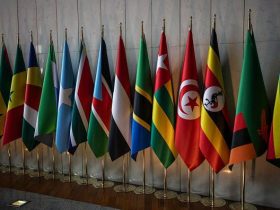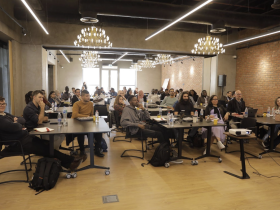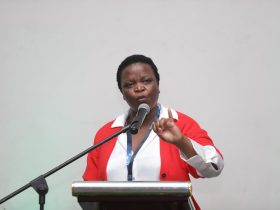The Free Market Foundation (FMF) and its Rule of Law Project are endeavouring to place South Africa’s violent crime crisis at the centre of the national agenda in the runup to the 2024 general elections. South African politics has become desensitised to our county’s internationally sky-high rates of violence.
The FMF is therefore proud to announce its Section 12 Initiative.
This initiative is aimed at making South Africa safer by helping police focus on real crime and decriminalising those law-abiding citizens who do no harm. But its success depends on South Africans making their voices heard by endorsing the initiative to their preferred political parties whilst sharing content to make sure the government is held accountable.
This can be done by visiting www.section12.org.za and following the indicated steps.
Martin van Staden
Head of Policy
Free Market Foundation
Deep reform
Simply ‘policing harder’ will not fundamentally solve the crisis of violence. Currently, no political party is offering a comprehensive criminal justice reform package as part of their electoral manifesto.
‘The entire criminal justice system must be reformed for a safer South Africa,’ says Van Staden.
This includes widespread decriminalisation of those activities that South Africa cannot and should not waste precious resources criminalising, and significantly decentralising police powers away from the central government.
The decriminalisation of activities that cause no harm to liberty or property will be positive for society and for the economy, yielding more business activity in the decriminalised areas of commerce. This will lead to economic growth and increased tax revenue, through the elimination of unnecessary prosecutions and law enforcement.
Most importantly, such a significant reform will yield a safer South Africa by allowing the police and justice authorities to focus their time and resources on real crime.
Section 12 of the Constitution
The initiative is based around section 12 of the South African Constitution, which accurately encapsulates the purpose of criminal justice.
It both authorises (and requires) government to combat violent crime and restrains government from itself becoming the source of violence. Section 12 guarantees to peaceful South Africans the liberty to conduct themselves freely without fearing reprisal by the state.
As part of the initiative, the FMF will seek clarity, through a Promotion of Access to Information Act (PAIA) request to Correctional Services, about who is presently filling South Africa’s very limited prison capacity. Given the extent to which government has criminalised peaceful and voluntary behaviour, it is highly likely that many prisoners do not appropriately belong in prison in the first place.
Overcriminalised society
‘Most South Africans underestimate the degree of criminalisation that surrounds us. Various activities that might ordinarily be regarded as innocuous are viewed by politicians as criminal,’ says Van Staden. ‘Precious police, prosecutorial, and prison resources are wasted, when these could be directed at the very real violent crime crisis.’
As a long-term project, the initiative seeks to create a publicly accessible database of all offences recognised in South African law.
‘This will enable ordinary people, for the first time in South African history, to get an accurate and comprehensive account of whether they are regarded as criminals according to some obscure legislation or regulation that nobody has ever heard of,’ says Van Staden.
The multifaceted Section 12 Initiative will actively seek to drive national attention to the issue of violent crime over the coming months, and hopes to ensure that the various political parties vying for power in the 2024 general elections change tack and begin to take violence seriously.
























Leave a Reply